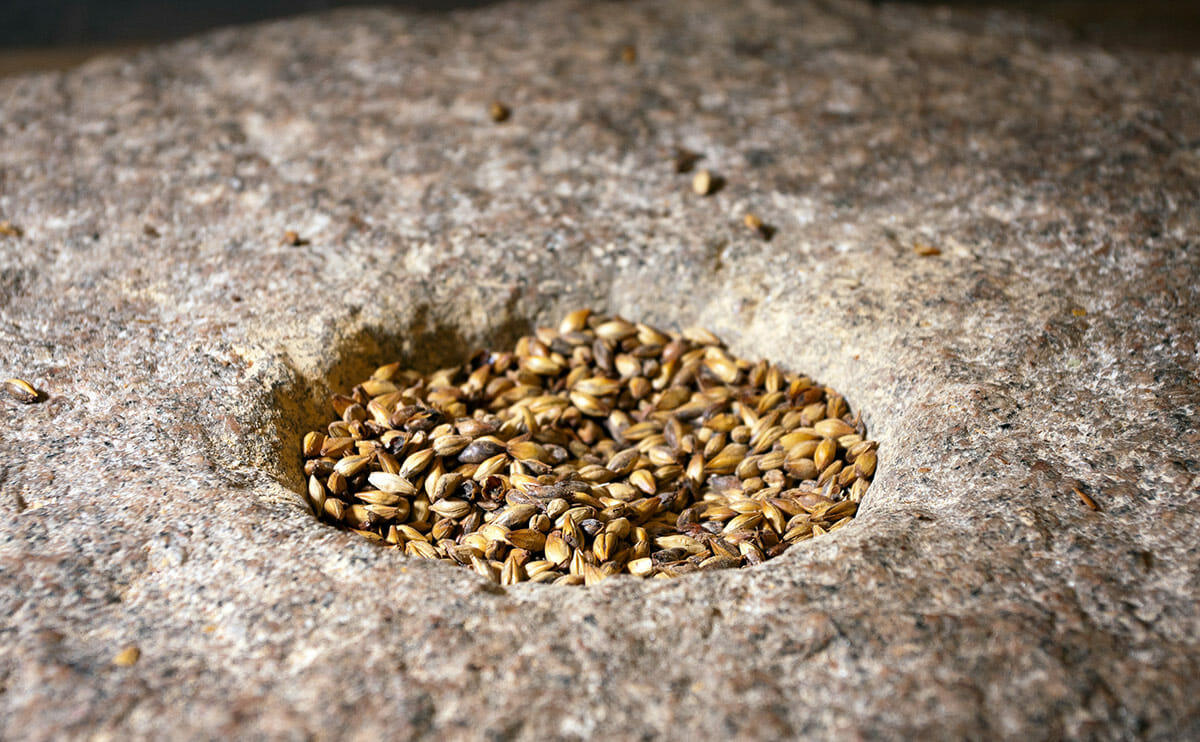Hop on the grain train.

“Ancient grains” are a silly marketing term, much like “superfood,” in that at best the term is indicative of a certain category, but has no real definition and is thus easily abused. (For a full definition, we recommend the Whole Grain Council’s post.) Generally “ancient grains” refers to any combination of several plant derivatives which may or may not even be grains. The earliest reference to this phrase we can find is in a 1996 Daily News article, which includes the sentence, “Most Americans will recognize millet as birdseed.” Still true, I think.
“Grain” itself generally refers to the hard, dry seed of a cereal plant. Cereals are grasses, such as corn, wheat, and rye. “Ancient grains” typically refers to any plant product with a nice origin story that has been less refined than corn or wheat or rye; For example, quinoa (not technically a cereal), buckwheat (not a wheat, and not technically a cereal), and amaranth (again, not technically a cereal). That said, these are often referred to as “pseudocereals,” because they sort of look like cereals, and can be grown and prepared like cereals. Except! They are better in some ways; they are gluten-free, typically, which is nice for sufferers of celiac disease and also other people who don’t eat gluten for whatever reason. Most notably, many ancient grains are very high in protein, whereas wheat and corn have basically none. Cool! Good! That said, they’re also very low in sugar, which means Cheerios are going to have about five times as much sugar as regular Cheerios. And it’s worth noting that the American embrace of trendy new subsistence produce can cause major upheavals for the people who farm and rely on these grains, as the New York Times explains in an article about quinoa farmers in Bolivia. And as the New Yorker points out, ancient grains Cheerios aren’t actually any healthier than regular Cheerios. Oh well, Cheerios are for babies anyway.
HAPPY CHANUKAH
In other news, it’s Chanukah! As a member of the tribe, with the crushing neuroses and unattractive bookish posture to prove it, here are my recommendations for Chanukah food reads. Serious Eats introduces you to a few new latke varieties. Bon Appetit gives a solid recipe for sufganiyot, which are jelly doughnuts and are, true story, traditional Chanukah treats. And some jerk idiot at NPR made doughnuts with latkes in the middle, as if the ramen burger wasn’t bad enough.
ELSEWHERE IN THE NEWS
Somebody told the Obama administration that the way we fish is destroying the oceans and soon we’ll have no fish.
U.S. Agriculture Secretary Tom Vilsack says President Obama’s Cuba reforms will be a boon for American farmers.
PopChart Lab has a really nice chart of all the beers in the world. People like beer.
Farmers Weekly rounds up the “5 most important tractors of the year.”
Vice’s food section, Munchies, launches a marijuana-themed video series called, of course, “Bong Appetit.”
WEIRD WIKIPEDIA
There are so many pseudocereals that I got lost in a pretty deep Wikipedia hole this week and was sort of late on delivering the newsletter, sorry editors, love you. A good example: this subspecies of amaranth, edible and commonly eaten in both India and Latin America, is usually called “love-lies-bleeding.” Goth. Nice.
WHAT’S THE WEATHER LIKE?
Dennis Mersereau over at Gawker spent a day in the bowels of the Weather Channel. Fun!
This month has had record rainfall in the Bay Area.
NOAA (pronounced “noah,” I found out in an awkward interview once which we don’t really need to go into here) says November was the 7th warmest November on record. I am not sure if this is alarming or not. Probably is. Probably all weather news is alarming.
The rain in southern California is having at least some positive effect on the drought there.
That’s it for this week’s Weekly Glean! Hope you enjoyed. For more agricultural news, parenthetical jokes, and deep Wikipedia dives, don’t forget to sign up to receive the Glean as a newsletter each week.